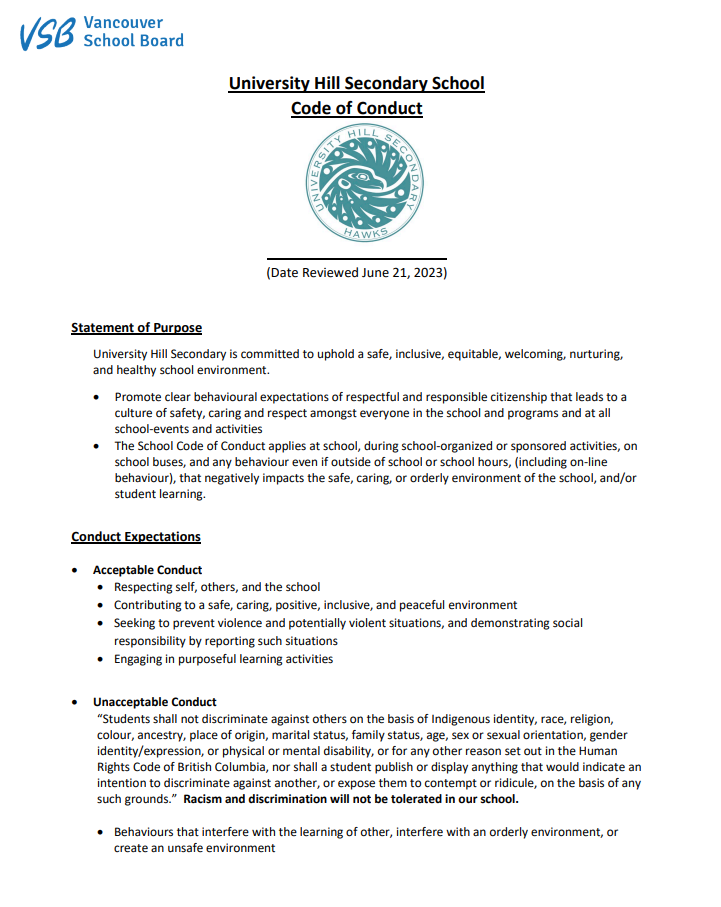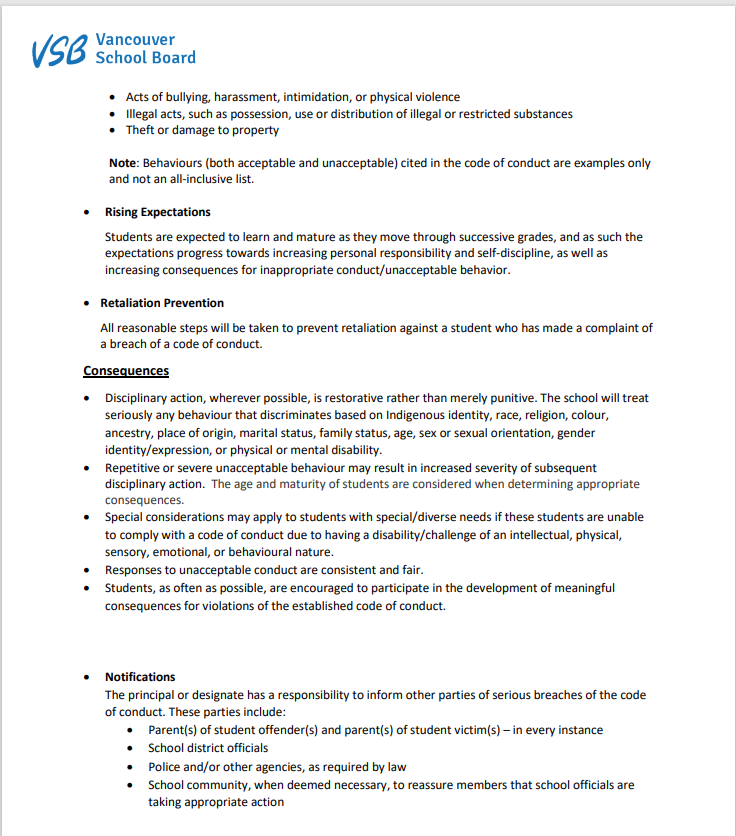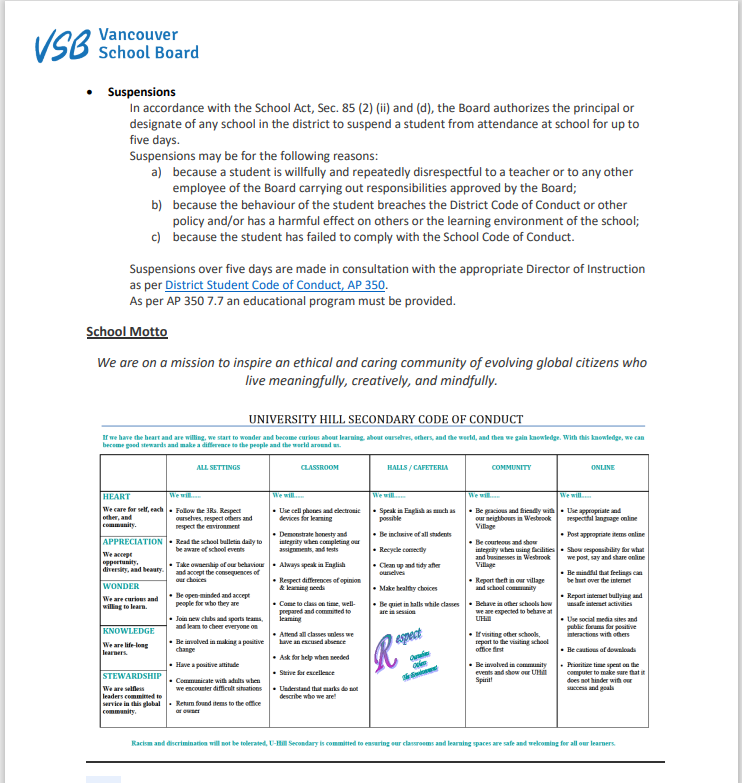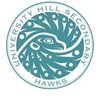Code of Conduct
Code of Conduct - Updated June 2024
UHill’s pro-active behaviour plan, as outlined on this page is the responsibility of each student. It is our expectation that students at UHill will demonstrate positive, school-wide behaviour as outlined in UHILL “HAWKS”. The core values reflect what is important in our community. These core values determine expectations for our actions as outlined in the UHill H.A.W.K.S. acronym.
HEART: We care for self, each other, and community.
APPRECIATION: We accept opportunity, diversity, and beauty.
WONDER: We are curious and willing to learn.
KNOWLEDGE: We are life-long learners.
STEWARDSHIP: We are selfless leaders committed to service in this global community.




